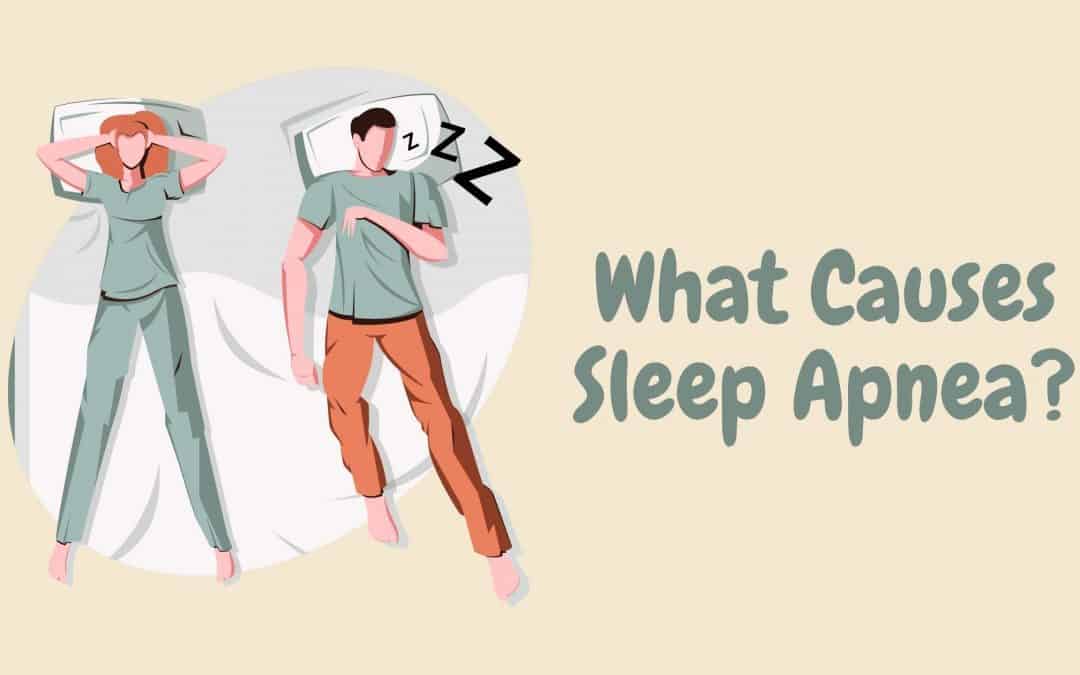Receiving quality sleep is a significant component of health and wellness. Sleep gives the body the time to rest and replenish the systems, muscles, and cells that sustain it. However, adults are recommended to receive 7-9 hours of sleep per night, over 35% sleep less than 7 hours per night.
According to the American Sleep Association (ASA), 50-70 million people have a sleep disorder. Sleep disorders can drastically impact mental and physical health, contributing to the development of various medical conditions. Sleep apnea is one of the most common sleep disorders people navigate.
Types & Symptoms
Sleep apnea is characterized by disruptions (pauses) of breathing while sleeping. Breathing can completely pause repeatedly or be shallow throughout sleep, impacting oxygen levels in the body. The main types of sleep apnea are:
- Obstructive, the dominant form of sleep apnea, happens when the tissue in the back of the throat overrelaxes. This causes airways to become narrower, making it more difficult for air to travel through easily. Feeling this airflow restriction, the brain sends signals and wakes the person to allow the airways to expand. This happens so quickly that the person doesn’t sense or remember it happening. The ASA estimates that 25 million people have obstructive sleep apnea.
- Central, less common; this type of sleep apnea is caused when the brain does not send the signals needed to breathe.
People can also experience both obstructive and central sleep apnea, which is referred to as complex sleep apnea syndrome or mixed sleep apnea. This sleep disorder produces the following symptoms in people with sleep apnea:
- Gasping for air during sleep
- Snoring
- Loud snoring is a significant symptom indicating a serious underlying health issue.
- Excessive daytime sleepiness, difficulty concentrating, feeling sluggish
- Dry mouth when waking up
- Headaches
- Frequently waking up to urinate
These symptoms prevent restful sleep and can affect energy and alertness the following day.
Sleep Apnea Cause
Existing medications, conditions, and physical features can cause sleep apnea. Specific behaviors can increase the risk of its development. Causes include risk factors such as certain medical conditions, demographics like age and sex, and lifestyle choices like smoking. Additionally, specific anatomical features can significantly increase the likelihood of developing obstructive sleep apnea.
-
- Medical conditions: including hypertension, endocrine disorders, congestive heart failure, neuromuscular conditions, kidney disease, diabetes, dementia, etc., increase the risk of sleep apnea
- Excess weight: extra weight around the neck significantly, can impact the upper airways and breathing
- Aging: though people of all ages can experience sleep apnea, the risk increases with age, meaning that older adults are more likely to experience sleep apnea.
- Nasal congestion: stuffiness in the nose (mucus accumulation) resulting from allergies, common cold, or other issues can contribute to sleep apnea
- Intake of Substances: smoking and taking opioid medications can contribute to inflammation and sleep apnea.
Obstructive, the dominant form of sleep apnea, happens when the muscles in the back of the throat relax excessively, leading to a narrowing or obstruction of the airway.
To diagnose sleep apnea, your doctor will conduct an initial evaluation to assess your risk of developing the disorder. Then, your doctor will likely refer you to a sleep specialist for further analysis and diagnosis.
Sleep Apnea Treatment
There is a range of approaches to treating sleep apnea. Treatment options are for maintaining open airways during sleep and can include self-managed strategies, breathing therapies, and surgery:
-
- Lifestyle changes: focus on changing behavior to improve health outcomes. This can include increasing physical activity, eating healthier, developing better sleeping habits, quitting smoking etc.
- Managing allergies: there are many ways to do this, like using over-the-counter medications and/or natural remedies (antihistamines, decongestants, dehumidifiers etc.) to alleviate symptoms of nasal congestion.
- Therapies: these interventions can include:
- Continuous positive airway pressure (CPAP): a machine that supplies air pressure through a mask worn over the nose while you sleep. This helps the airways to remain open, enhancing airflow. A sleep study is often conducted to diagnose sleep apnea and determine the effectiveness of CPAP therapy.
- Other devices: other airway pressure devices are alternatives to CPAP machines.
- Oral instruments: different mouthpieces are custom-fit to support the upper airways.
- Surgery: surgical treatment is typically intended to treat severe obstructive sleep apnea that is not alleviated by other therapies. Surgical options can include:
- Tonsillectomy: partial or complete removal of the tonsils
- Jaw Placement: realigns the jaw forward to create more space for the upper airways
To diagnose sleep apnea, your doctor will conduct an initial evaluation to assess your risk of developing the disorder. When a doctor diagnoses sleep apnea, it is crucial to determine the appropriate treatment. Then, your doctor will likely refer you to a sleep specialist for further analysis and diagnosis. A sleep clinic plays a vital role in conducting thorough evaluations like polysomnography.
There are numerous effective ways to treat sleep apnea patients, and addressing underlying causes such as obesity is important. Please consult with our team of sleep specialists at Enticare to learn what is best for you!

